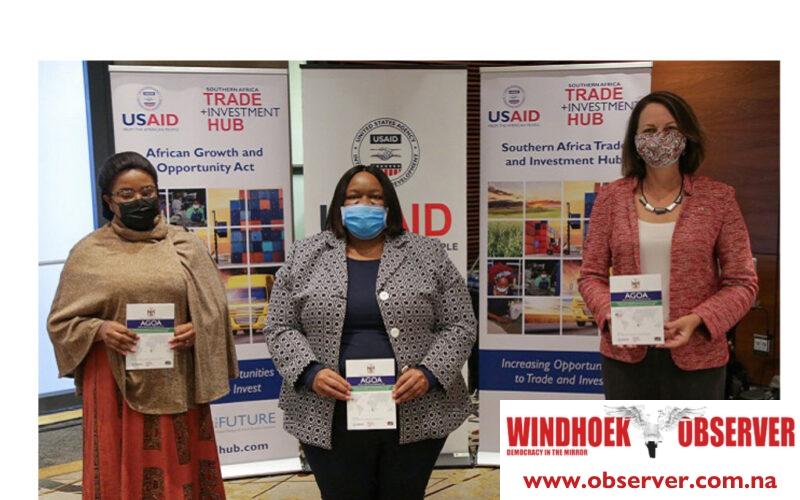Niël Terblanché
New optimism about the future of Namibia’s economic engagement with the United States of America has begun to manifest.
The American Ambassador to Namibia, Ambassador Randy Berry, recently said that the United States of America is committed to strengthening trade and investment ties with Namibia and other African countries.
Ambassador Berry stressed the importance of these partnerships for mutual prosperity and the significance of Africa’s youthful population.
“The United States is all in on Africa,” Ambassador Berry declared, referencing the affirmation made during the U.S.-Africa Leaders’ Summit last December.
He emphasized the United States’ focus on Africa’s future and its dedication to supporting the health and well-being of the continent’s emerging generation.
Ambassador Berry pointed to the interconnectedness between the United States and Africa, noting that success on both sides of the Atlantic is intertwined, and the key to a prosperous future lies in mutual cooperation.
He explained that the United States is committed to advancing trade that is accessible, fair, competitive, and resilient, and to achieve these goals, the Prosper Africa initiative was launched.
Prosper Africa is a U.S. Government program designed to enhance two-way trade and investment between the United States and African countries.
By collaborating with the private sector and African government partners, Prosper Africa aims to create jobs for both African and American workers and promote shared prosperity.
Ambassador Berry also stressed the significance of the African Growth and Opportunity Act (AGOA) in achieving the vision of shared prosperity.
AGOA, in place for over two decades, has had a substantial positive impact on millions of Africans by offering duty-free access to the U.S. market for a wide range of products, creating jobs, and providing economic opportunities, especially for women and youth.
Ambassador Berry encouraged Namibian businesses to explore how AGOA can help increase sales, expand employee training, and benefit local communities.
He, however, noted that to maintain eligibility for AGOA benefits, countries must uphold core values such as the rule of law, respect for human rights, combating corruption, and protecting workers’ rights.
In Namibia, the U.S. Government has actively supported the Ministry of Industrialisation and Trade in developing the National African Growth and Opportunity Act (AGOA) Utilisation Strategy.
Since 2017, this collaboration has enabled Namibian firms to unlock over N$30 million worth of exports to the United States under AGOA.
Ambassador Berry highlighted the increase in exports to the United States, particularly due to charcoal exports by The Good Charcoal Company, which utilizes sustainably harvested Namibian wood.
Other key export categories include agricultural products, chemicals, minerals, metals, and other manufactured goods.
To ensure the sustainability of AGOA’s benefits, the Biden-Harris Administration fully supports reauthorizing AGOA, as the legislation’s benefits are set to expire in 2025.
Ambassador Berry pointed out that policy tools like AGOA should evolve over time, leading to the driving purpose of the AGOA Forum held in Johannesburg, South Africa.
This annual gathering brings together the U.S. Trade Representative and trade ministers from AGOA participant countries to review their collaborative efforts and explore opportunities for further growth.
Furthermore, the AGOA Forum serves as a catalyst for a broader community, bringing together government officials, civil society leaders, labour representatives, and private sector investors from across Africa and the United States. They share a common goal: using trade to create better opportunities for everyone involved.




